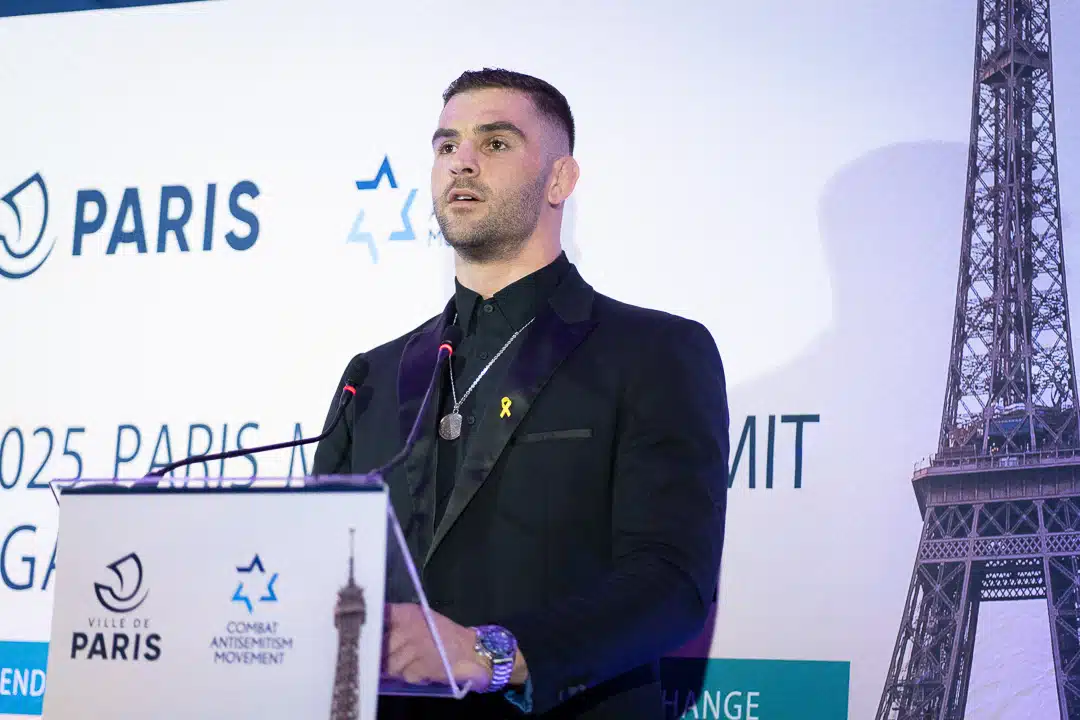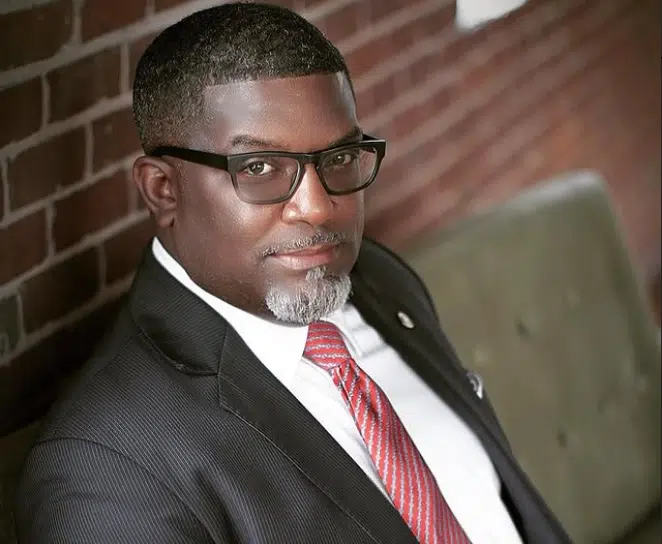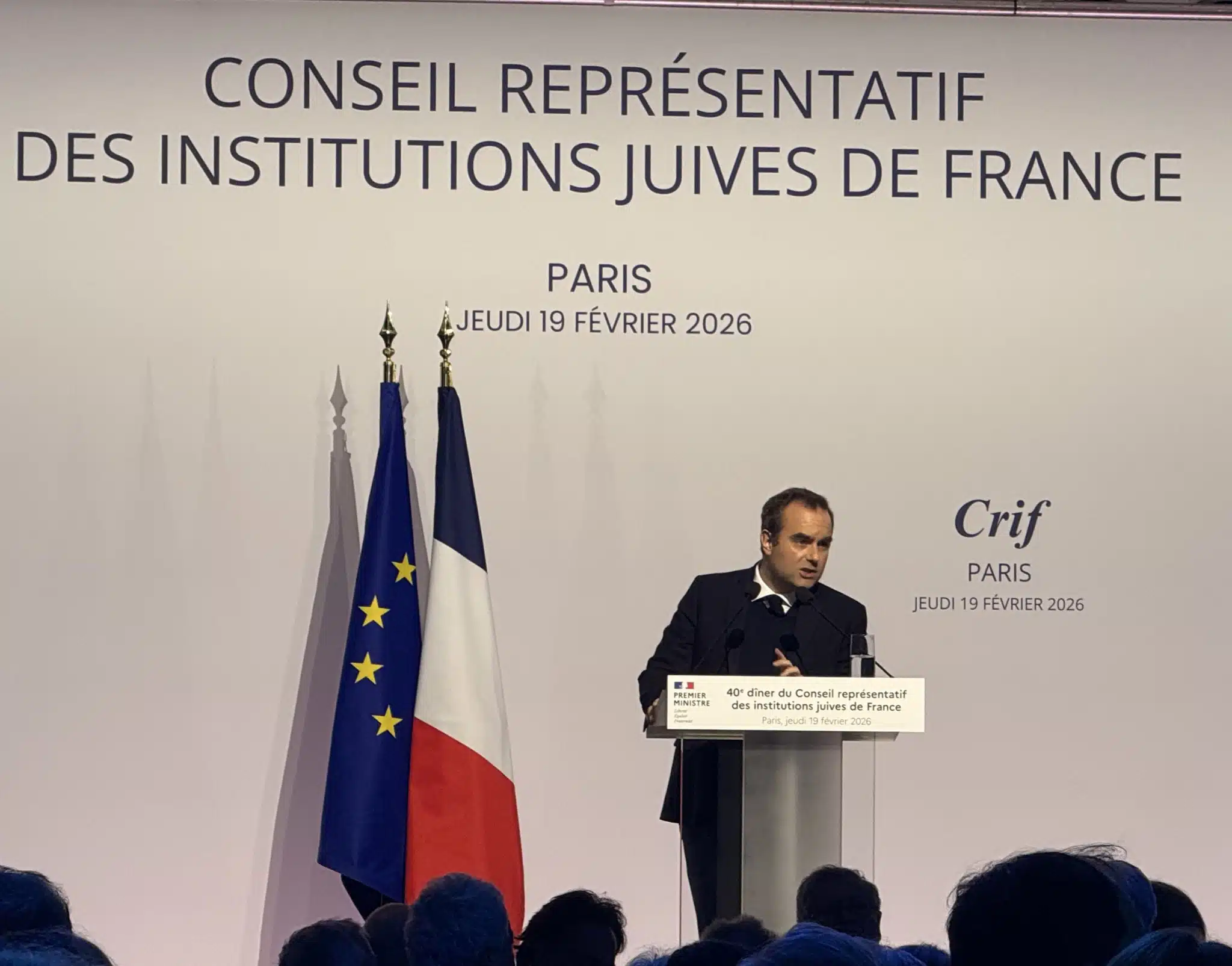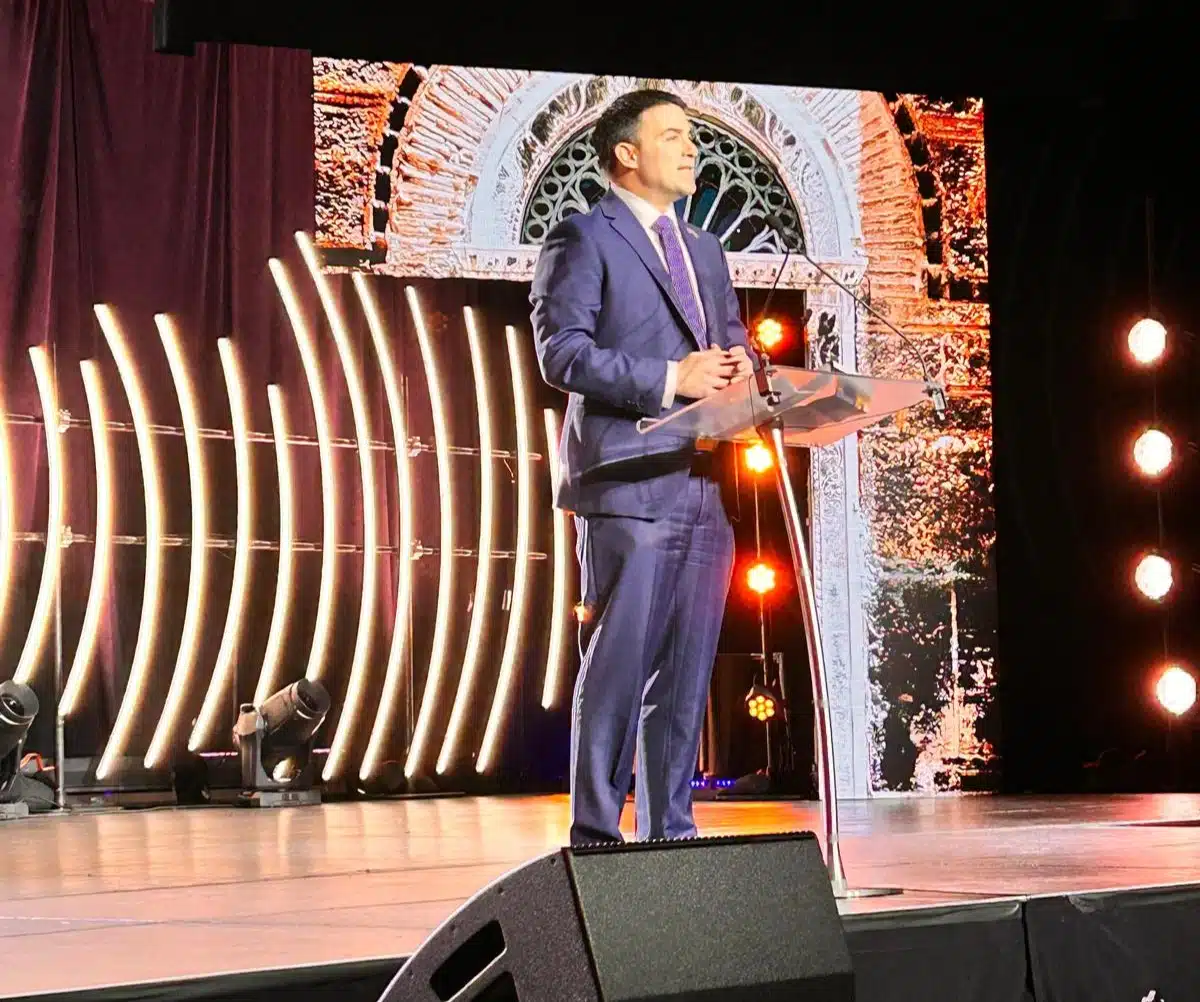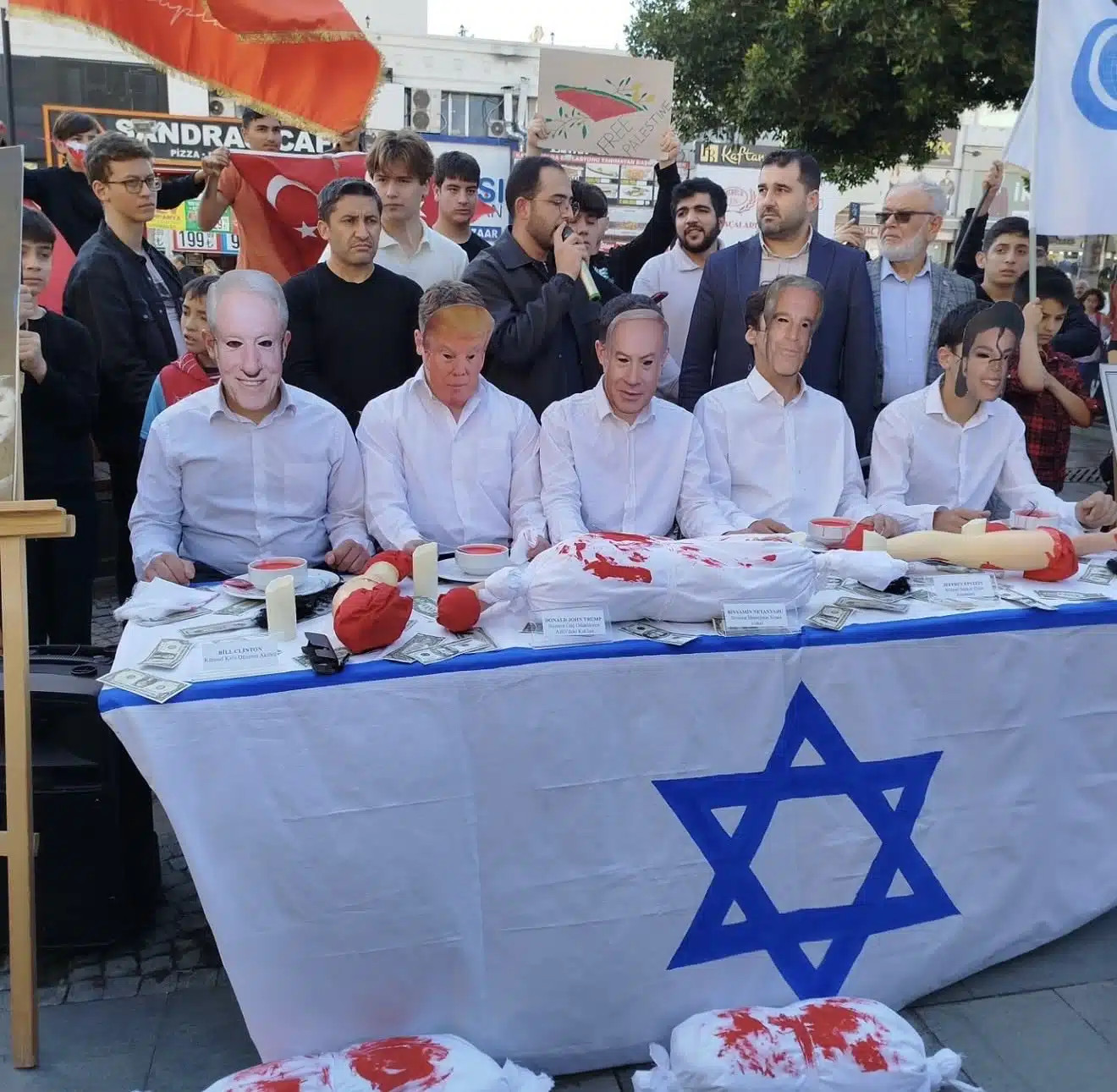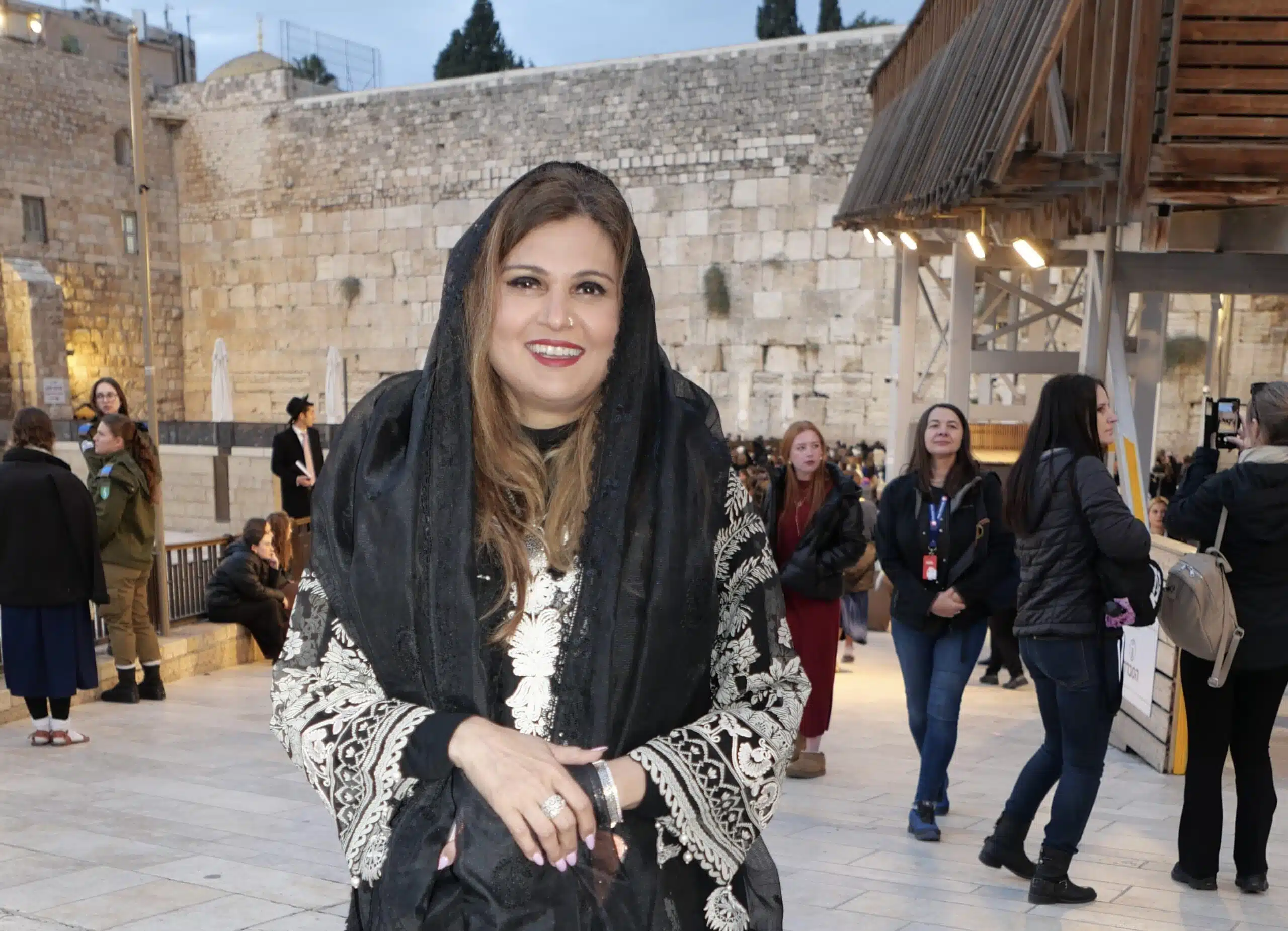

Jewish Confederation of Ukraine President Boris Lozhkin Previews Third-Annual Kyiv Jewish Forum
The third-annual Kyiv Jewish Forum — to be broadcast online on December 15th-16th, 2021, at 15:00 Ukraine time (8:00 AM EST) — will bring together top global leaders to discuss and share their insights on the most pressing issues facing Jewish communities worldwide.
This year’s Forum — co-hosted by the Jewish Confederation of Ukraine, the Center for Jewish Impact, and the Combat Antisemitism Movement — coincides with the 30th anniversary of the establishment of official diplomatic relations between Israel and Ukraine.
Ahead of the Forum, Jewish Confederation of Ukraine President Boris Lozhkin spoke with the Combat Antisemitism Movement to provide a preview of the event.
What is special about this year`s Kyiv Jewish Forum? What will be different from the past two years?
“We have timed the current Kyiv Jewish Forum to the 30th anniversary of the establishment of diplomatic relations between Israel and Ukraine. It is no coincidence that we have chosen this date. Our states are formally young, both gained independence in the twentieth century. However, behind these formal frameworks, limited to several decades, lie centuries-old relations between Jews and Ukrainians and the same centuries-old mutual desire for independence.
Until 1900, a quarter of all Jews in the world lived on the territory of Ukraine. During the last century, after the pogroms in the Russian Empire, several waves of the Holodomor, the Holocaust, and Soviet antisemitism, many Jews left in search of a better fate and found it in many countries of the world. It was only with the gaining independence by Ukraine that the Jewish community began to revive.
Today, Israel is home to about 500,000 people from Ukraine, and about 200,000 Jews live in Ukraine, making the Ukrainian diaspora the fourth-largest Jewish community in Europe.
We will analyze the last 30 years and, through their prism, look at a deeper past in order to plan a more successful future for our peoples in particular and Jews in general.
The third Kyiv Jewish Forum will also focus more on the growing global antisemitism in all its forms, including through its penetration into the online environment. Our partner, Combat Antisemitism Movement (CAM), having a wealth of expertise in this issue, will help us highlight the key points. With the help of the CAM, I hope we can reduce the future risks of antisemitism spreading.
In addition, our speakers will also share in more depth and detail Israel’s extensive and useful experience as a recognized startup state, and representatives of Jewish communities from other states will be able to assess what from this experience can be applied, and maybe even improved, to them.
In this block, the main expert will be another of our partners, Center for Jewish Impact, founded by Robert Singer.
This, perhaps, is the difference between the third Kyiv Jewish Forum from the two previous ones. It will be more thematic and focused on solving specific issues.
If we talk about the format, then the third, like the second Kyiv Jewish Forum, will again be held in the online conference mode – COVID-19 continues to dictate its terms.”
From your view, as president of the Jewish Confederation of Ukraine, what are the most urgent issues that must be addressed at the Forum?
“How can Jews in all communities of the world be even more united, and what needs to be done to minimize the spread of antisemitism? These are the main issues that the speakers will focus on and, I hope, find effective solutions.
One of them, in my opinion, lies in the spread of Jewish education and culture. The identity that Jews have cherished for two thousand years is no less important today, even when there is independent Israel. Education will help bring Jews closer together around the world and for the good of Israel. Educational projects can also reduce the level of antisemitism, as its main cause is ignorance and lack of knowledge about the history and culture of Jews. This, by the way, will be helped by the propagation of numerous successful examples of Israeli innovations.”
Why is it important for the global community to hear the perspective of Ukrainian Jews?
“The descendants of Ukrainian Jewish immigrants still live all over the world and largely determine its future. At the same time, they do not forget about their Ukrainian roots.
Despite the various stages that Jews and Ukrainians have gone through together over the centuries of neighborhood, Ukrainians today demonstrate one of the highest levels of tolerance in the world. Pew Research estimates that 83% of Ukraine’s population share a positive attitude towards Jews and even elected a Jewish president.
In recent years, the Jewish community of Ukraine has reached a qualitatively new level of development and relations with both the foreign diaspora and Israel.
On January 1st, 2021, a free-trade zone began to operate between Israel and Ukraine; earlier, an agreement on a visa-free space had been reached between our countries.
This year, on May 14, Ukraine celebrated the Day of the Righteous among the Nations in Ukraine for the first time. The example of Ukraine has become unique when the memory of its citizens who helped Jews avoid death during the Holocaust began to be honored at the national level.
Currently the world established International Holocaust Remembrance Day and the European Day of the Righteous Among the Nations. We call on other countries to follow the example of Ukraine and establish their own Days of the Righteous Among the Nations, as this will help preserve the memory of the Holocaust and reduce antisemitic sentiments.
By the way, the holidays Rosh Hashanah, Hanukkah, and Passover have also become state holidays in Ukraine.
The experience of Ukraine in perpetuating the memory of the people who saved Jews will also be important for preserving the memory of the Holocaust. This year, to the 80th anniversary of the mass executions in Babyn Yar, based on the materials of the Israeli Yad Vashem — the World Holocaust Remembrance Center, the Jewish Confederation of Ukraine, in partnership with the Babyn Yar Holocaust Memorial Center and the Euro-Asian Jewish Congress, published the book, Righteous Among the Nations — Ukraine, with a comprehensive list of all Righteous Ukrainians and individual stories of the salvation of Jews. We invite other communities to follow our example and publish similar books in their countries.
Although the level of antisemitism in Ukraine is relatively low, there are still some manifestations of it, and for a quality legal and more civilized fight against it, the Verkhovna Rada recently adopted the Law on Preventing and Countering Antisemitism. This law lays down a working definition of antisemitism by the International Holocaust Remembrance Alliance (IHRA). The adoption of this law, I believe, was also facilitated by the previous Kyiv Jewish Forums, in which the speakers repeatedly emphasized the importance of Ukraine adopting an internationally recognized working definition of antisemitism. We encourage other countries that have not yet done so to also accept the IHRA definition.”
What do you hope will be accomplished at the Forum?
“I would like to further increase the audience of the Kyiv Jewish Forum and convey the main messages and decisions of the Forum to as many people as possible, both Jews and non-Jews around the world.
I hope Israel’s experience will enrich Jewish communities around the world. I also look forward to making concrete decisions on developing measures to further curb the spread of antisemitism.
The positive experience of cooperation between Ukraine, Israel, the United States, and other countries through relations between the largest Jewish diasporas should remind of the rich historical heritage and help to strengthen them even more.”
For more information on the Kyiv Jewish Forum and FREE registration, visit: kyivjewishforum.com

